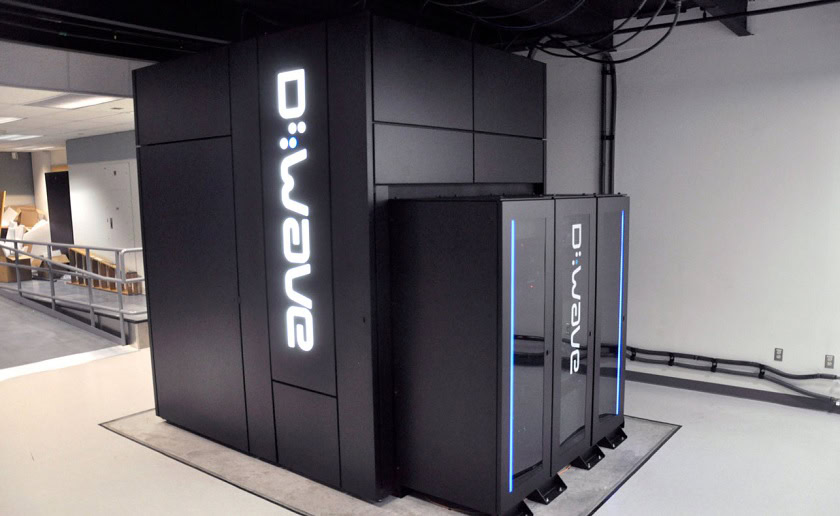Affiliate links on Android Authority may earn us a commission. Learn more.
Google claims to have proven that its D-Wave machine has quantum compute capabilities

Google has just published a paper which it claims proves that its controversial D-Wave quantum computer really can tap into quantum physics to solve problems. There have previously been some questions raised about the actual capabilities of the D-Wave sold to Google, but the company now appears to be much more confident about what it can do.
Google has been running a couple of tests on its D-Wave 2X computer, pitting it against a more typical computer chip. The results found that the D-Wave’s quantum annealing (solving optimization problems) is considerably faster than simulated annealing, suggesting that the machine may actually have, at least some, quantum compute abilities.
We found that for problem instances involving nearly 1,000 binary variables, quantum annealing significantly outperforms its classical counterpart, simulated annealing. It is more than 108 times faster than simulated annealing running on a single core. We also compared the quantum hardware to another algorithm called Quantum Monte Carlo. This is a method designed to emulate the behavior of quantum systems, but it runs on conventional processors. While the scaling with size between these two methods is comparable, they are again separated by a large factor sometimes as high as 108.
The test results can be achieved 100,000,000 (100 million) times faster on the D-Wave when compared to a single core quantum simulation running on a traditional chip. A very compelling result.
However, Google will have to wait for a peer review of the results before truly celebrating and questions have already been raised about the experiment. Apparently, an alternative algorithm or exploit in the simulated D-Wave annealing algorithm could have been used on the conventional computer that may have allowed it to win. However, Google has its own quantum computer design efforts underway that should remove this bug, meaning that this shortcut probably won’t be available in the future anyway.
“building a quantum computer is really, really hard, so first of all, we’re just trying to get it to work and not worry about cost or size or whatever,” – John Martinis, head of Google’s quantum hardware program
The D-Wave has long come in for criticism from some in the field, with suggestions that the company oversold the machine’s capabilities. Previous research attempts have been unable to prove exactly whether the computer was making use of quantum effects or not, but Google’s results could help settle some of the debate.
Eventually, quantum computing could lead to major performance boost for some data heavy tasks, ranging from image recognition through to artificial intelligence. There is still a long way to go before commercial viability and uses are realized, but Google’s results suggest that we are on the way.